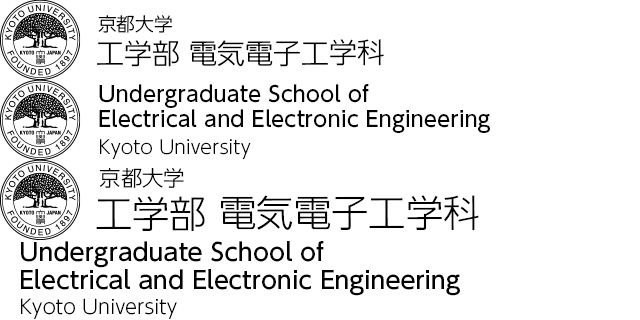Curriculum
Many graduates of the School of Electrical and Electronic Engineering have played an active role as engineers and researchers in various fields relevant to energy, communications, informatics, electronic and system control. This can be made possible only by consolidating the basic academic ability and improving knowledge and application skills to deal with a broad range of issues. In our school, students learn basic subjects in their first and second undergraduate years and then select their areas of specialty to study in their third and fourth years. The basic core subjects taken by all students include: mathematics, physics, electromagnetics, electric circuit, electronic circuit, computation, and information processing. Experiments concerning electrical and electronic engineering are systematically integrated into the curriculum for two years from the second year.
When choosing their areas of specialty, students can make a decision after due consultation with the advisor allocated to each student at school entry. Representative specialized areas are (1) electric energy, (2) system control, (3) electronic materials/property/device, (4) vacuum plasma, (5) information and telecommunications networks, and (6) computation.
After studying the above subjects, students in the fourth year engage in research on the latest topics that faculty members and graduate students are dealing with.
